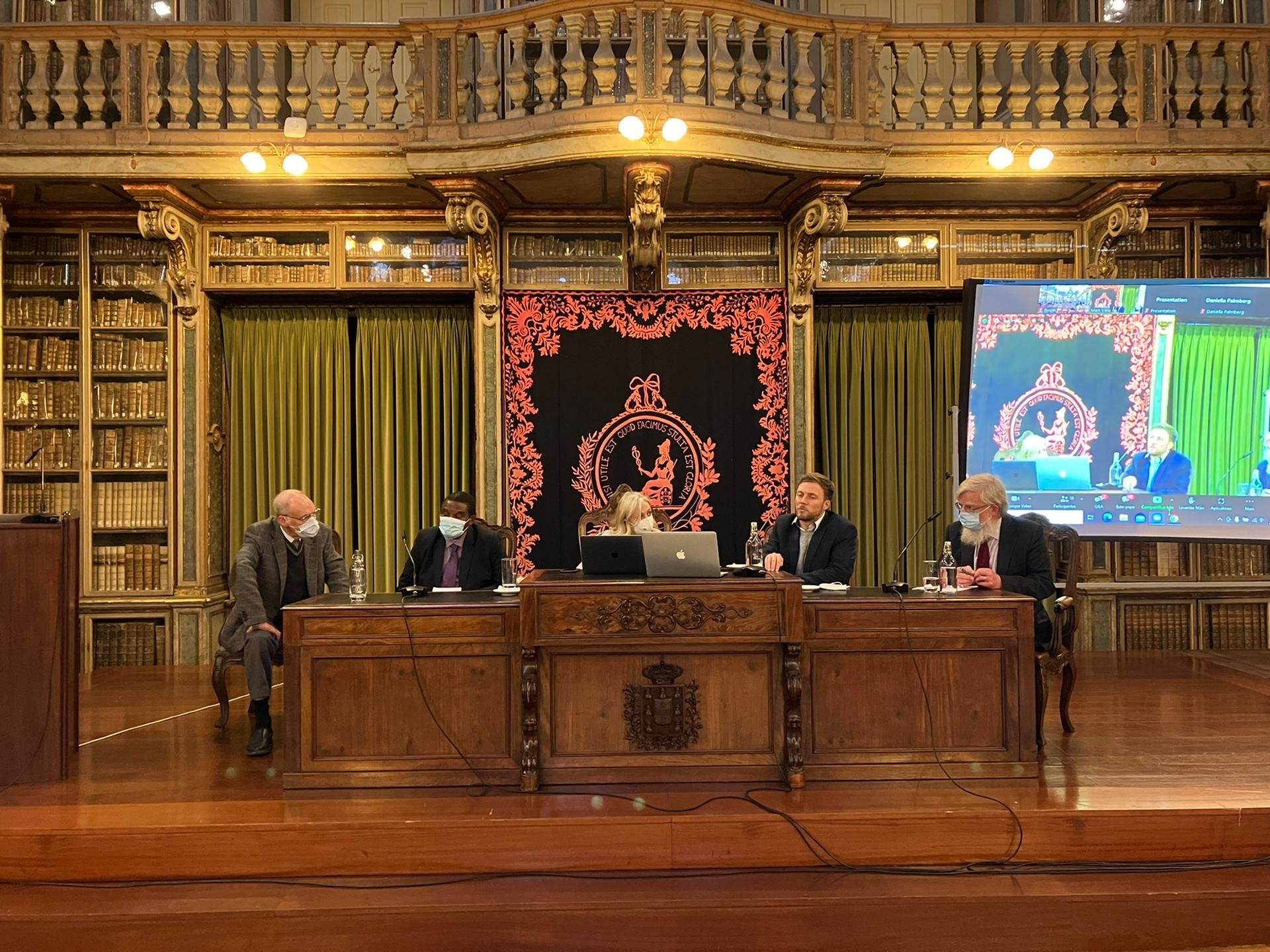ALLEA Joins InsSciDE Conference on Science Diplomacy

ALLEA was invited to join InsSciDE’s third open conference, held on 22-24 March at the premises of the Lisbon Academy of Sciences and the Universidade Nova de Lisboa. This year’s InsSciDE’s conference focused on the Global South and explored crucial themes in Europe’s relationships to the many emergent poles of scientific expertise and influence. Different perspectives were prompted on how a new vision and practice of science diplomacy may be critical to bridging the Global North and South interests and contribute to finding common, albeit diverse, solutions.
On day 1, the focus of the conference was on the role of Academies of Science in science diplomacy to delineate the role of such academies as science diplomacy organisations, particularly concerning their international involvement and role in asserting science diplomacy. The four sessions throughout the day engaged a diverse group of scholars and professionals to chart Academies’ international action in the present and as far back as the 18th century.

Daniel Kaiser presents a brief introduction of ALLEA and its involvement in Science Diplomacy at the Lisbon Academy of Sciences.
ALLEA’s Scientific Policy Officer Daniel Kaiser joined session 3 as a moderator and session 4 as a panelist, where he delivered a brief presentation on the history of ALLEA and its work on science diplomacy throughout the years. In his presentation, Daniel Kaiser emphasised that ALLEA “strives to advance the role of Science Diplomacy in Europe, promote a global approach to science and research, and provide an international structure for enhanced cooperation on global challenges as well as high-quality independent science advice for policy.”
On day 2 of the conference, diverse stakeholders came together to discuss the entanglements between science diplomacy and four topics that the conference deemed as central to future action: Open Science, Anthropocene, Technoscience and Innovation Diplomacy, New Actors and a New Definition of Science Diplomacy. ALLEA was represented by its President, Professor Antonio Loprieno, who joined the morning roundtable on Open Science. He briefly presented the work of ALLEA’s Open Science Task Force and introduced ALLEA’s involvement with the UNESCO Recommendation on Open Science.

President Antonio Loprieno virtually joined InsSciDE to introduce ALLEA’s activities on Open Science.
Speaking on the changes needed for succesful Open Science, Professor Loprieno remarked that “the move to full open access must be accompanied by concurrent reforms of the systems for research evaluation and career progression; it will thus require a fundamental re-evaluation of the responsibilities of all the different actors in the research system. Particular attention must be paid to the impact on early-stage researchers, those from disadvantaged institutions and communities, and those working in specialist disciplines.”
On the third and final day of the conference, the focus of discussion was on InsSciDE’s historical case studies from the forthcoming book of Harmonized Case Studies. In this session, case study authors, invited experts and public attendees engaged with the research to identify cross-cutting themes and present-day applications for teaching, training and everyday practice.
You can read the full programme of the three-day conference here or visit the conference’s website here.

